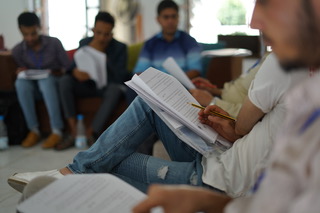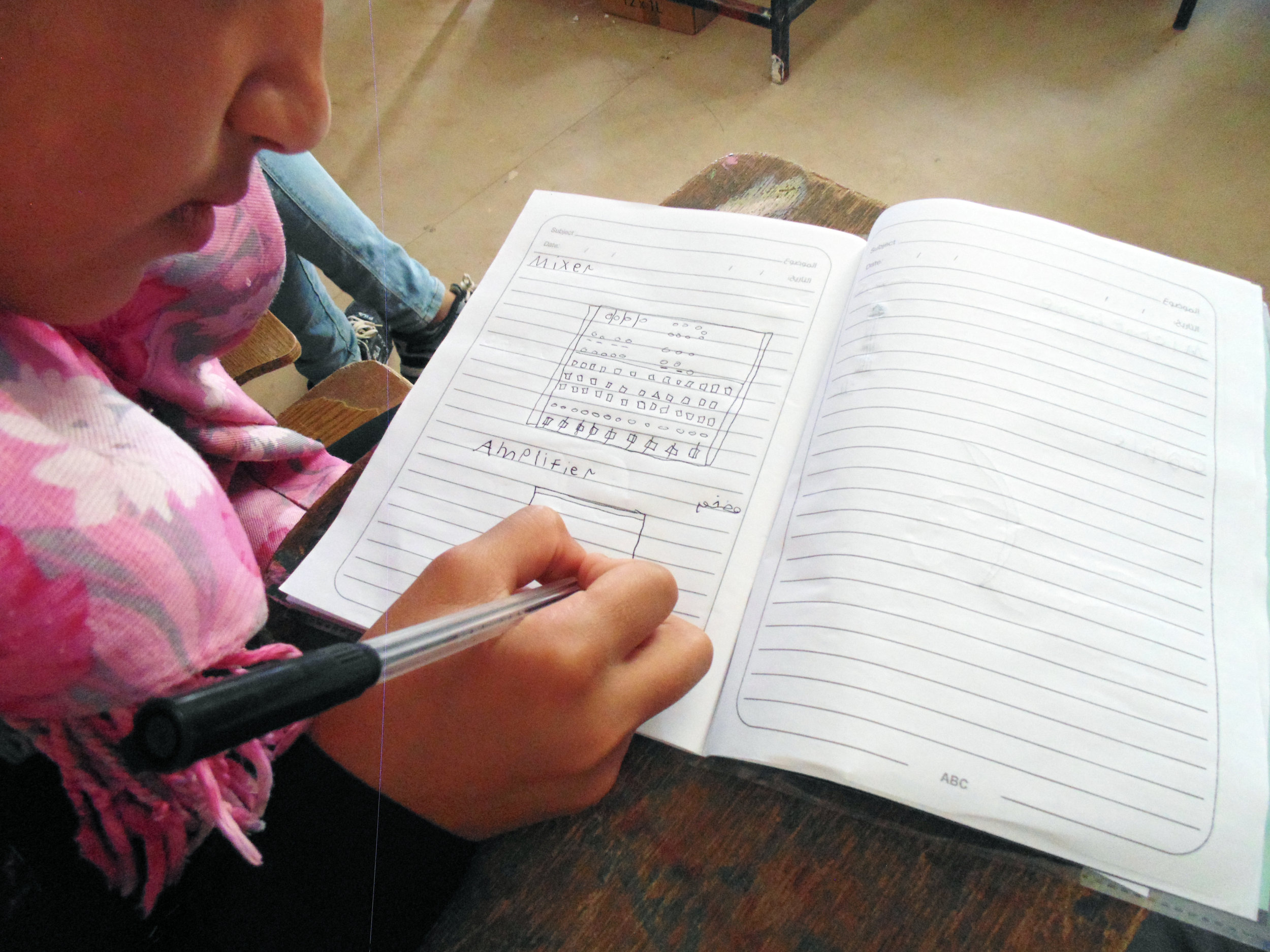Ibi Ibrahim: Creativity in Conflict
Photo by Abdullah Minhas
Ibi Ibrahim is a Yemini visual artist, filmmaker and musician, beginning his artistic endeavours through photography as a “form of escape.” Currently his work is firmly concentrated on video art, recently working on a video piece entitled ‘Return,’ a short film investigating the process of Yemini nationals making their way back to Yemen four years after the Civil War began there. Expected to be released next month, ‘Arrival’ is a follow-up work from Ibi’s film ‘Departure’, a short film recounting the struggle of Yemenis stranded and displaced outside of their home country as a result of the ongoing war.
This month also sees the publication of ‘Conflict: A New Literature of Yemen’, a book published by the Romooz Foundation comprising of 11 short stories in Arabic featuring the work of emerging Yemeni writers. After a run of creative writing workshops over the Summer focusing on story telling through war time, the writers drew attention to the role of literature as a means of trauma and treatment, and as a form of contribution to a broader national dialogue of peace and reconciliation within Yemeni society.
Previously, Ibi has also focused on music, being one half of synth-heavy and Middle Eastern tinged pop duo Kabreet. Having starting Kabreet in 2014 in Berlin with former journalist and hip hop DJ Hanno Stecher, the duo have released two full length albums with the support from the Arab Fund for Art & Culture (AFAC).
Ibi always wanted to release music, but patiently waited for “the right moment to speak”. When discussing his cultural identity and the impact it has on his work, Ibi recognises the internal battle that many middle eastern artists undergo: “I try to work against it sometimes, but at times I just give up. Being from this region and at this time forces you to speak to what you witness, see and live. It is hard to simply dismiss it in your creative work.” These sentiments are reflected in the output of Kabreet; a melting pot of influences from Eastern and Western pop music, their songs can be distinctively defined by Ibi Ibrahim’s Arabic Singing layered over contemporary electronic soundscapes.
In 2014, Ibi also became the first Yemeni artist to participate in the Cite Internationale des Arts residency program in Paris, during which he learned to find “beauty in the struggles of pursuing a career in the arts.” 10 years on, Ibi is now the director of Romooz Foundation, an independent, non-profit foundation, dedicated to the promotion and development of Yemeni Art and Culture.
“Through local and international exhibitions featuring the work of Yemeni artists, trainings, residencies, workshops, literature events, conferences, film festivals, artists talks, and public programming, the foundation aims to contribute to the development of a pluralistic, democratic society in Yemen.” With the war in Yemen raging since 2015 and the death toll now reaching 100,000 people, Ibi’s work with the foundation echoes his expressions for art as a form of escape.
“The organization aims to promote art as a means for conflict resolution, peace-building, learning and social development.” For the foundation’s most recent open call for work, they received over 300 submissions from all over the country, demonstrating how the Yemeni creative is engaged with following opportunities and activities within the arts and local foundations despite living in perilous and politically unstable times.
Romooz Workshop
Zaatari Radio Workshop
Similar to the work of Zaatari Radio, Ibi argues that international donors need to engage with creative problem-solving to address the challenges of communities affected by war: “international donors need to shift their strategies and focus on cultural practices projects that are art-infused.”
As the Yemeni Civil conflict and its humanitarian destruction continues, Ibi’s art has also seen a transformation. Previously he created mainly “commercial work”, but now Ibi has focused on creating a platform for portraying other people’s narratives. When asked about how the civil war has influenced his work, Ibi replies “Absolutely. Otherwise, I don’t think Romooz or Diwan Al Fan would ever exist today. We needed a different narrative and associating Yemen with other things rather than just a word on a news report or a news segment on TV. There is rarely a platform for oral story-telling for those who have been severely affected by the war.”
Photo by Somaya Abdualla
Accordingly, a continuous theme of Ibi’s art is displacement: “I can’t dismiss it, I am currently living it. It has become part of me, or I’ve become part of it.” In times of conflict, artists become innovators, many young creatives from small towns are utilising services such as Instagram and suddenly become admired by 100s if not 1000s. Following this phenomenon, Ramooz launched Phone Art Yemen (@pa.Yemen) in partnership with Phone Art global. The aim of the initiative was to create a base of Yemeni artists to get acquainted with one another's work through the Instagram page of PAY, as well as creating coverage for as many Yemeni cities and locations as possible as an attempt to introduce the public to many unknown parts of Yemen. Having just held their first presentation in Sana’a, Ibi was pleased to witness this: “We’re rebuilding the scene with much positivity and support from one another.”
Ibi is hopeful for the future of Yemeni art: “I think the focus is rather on the contemporary artists today; for them to continue producing, sharing their work and becoming a mirror of their society. Transform those ideas into artistic discussions and practices.” Despite taking place in times of conflict and unrest; Ibi Ibrahim’s individual practice and work through Romooz Foundation confirms that art and culture are a foundation of democracy, acceptance and eventually; a peaceful society.






